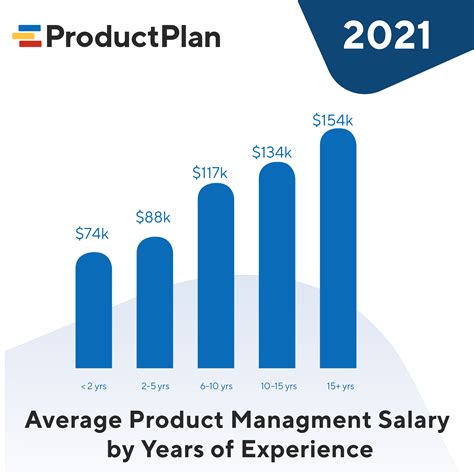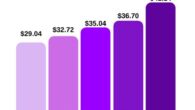Are you considering a career as a product manager? Or maybe you’re already in the field and looking to advance your career and increase your earning potential? In this blog post, we will explore the world of product manager salaries and how you can effectively manage product development while enjoying a lucrative living. From understanding the key responsibilities of a product manager to negotiating a competitive salary and exploring additional perks and benefits, we’ll cover it all. We’ll also delve into the factors affecting product manager salaries, regional variances, and salary trends, so you can make informed decisions about your career path. Whether you’re just starting out in the industry or looking to take the next step in your career, this post will provide valuable insights to help you navigate the world of product manager salaries.
Table of Contents
The Role of a Product Manager
In today’s fast-paced business world, the role of a Product Manager is more crucial than ever. Product Managers are responsible for overseeing the development and launch of new products, working closely with cross-functional teams to ensure that the products meet the needs of both the company and its customers. They act as the bridge between the technical and business sides of a company, balancing the demands of various stakeholders while keeping the overall product strategy in mind.
One of the key responsibilities of a Product Manager is to conduct market research and gather insights into customer needs and preferences. By understanding the market and customer requirements, Product Managers can make informed decisions about which features and functionalities to prioritize in the product development process. This helps to ensure that the final product aligns with the needs of the target audience and has a competitive edge in the market.
Additionally, Product Managers are often tasked with defining the product roadmap and strategy. They must have a deep understanding of the company’s goals and objectives, as well as the competitive landscape, in order to develop a product plan that aligns with the overall business strategy. This involves collaborating with various stakeholders, such as engineering, marketing, and sales teams, to create a cohesive vision for the product and ensure that everyone is working towards the same goals.
Furthermore, Product Managers play a critical role in driving the success of a product by continuously monitoring its performance and gathering feedback from customers and internal teams. They use this feedback to make data-driven decisions about the product’s features, functionality, and future direction, helping to ensure that the product remains relevant and competitive in the market.
Key Responsibilities of a Product Manager
As a product manager, your key responsibilities revolve around the successful development, launch, and ongoing management of a product or feature. This involves working closely with cross-functional teams such as engineering, design, marketing, and sales to ensure that the product meets the needs of customers and aligns with the company’s overall strategy.
You are responsible for defining the product vision, strategy, and roadmap, and for prioritizing features and enhancements based on customer feedback and market research. You will also need to create and maintain product documentation, including user stories, mockups, and specifications, and communicate the product strategy and roadmap to key stakeholders, both internally and externally.
Another important aspect of your role is to analyze data and metrics to gain insights into product performance and customer behavior. This involves collaborating with data analysts and other team members to define and track key product metrics, and using this data to make informed decisions about product improvements and optimizations.
Finally, you will be responsible for managing the product launch and ensuring its successful adoption, which may involve collaborating with the marketing and sales teams to develop go-to-market strategies and support materials, as well as monitoring the product’s performance post-launch and making adjustments as necessary.
Factors Affecting Product Manager Salaries
As a product manager, your salary can be influenced by a variety of factors. One of the most significant factors affecting product manager salaries is the level of experience. Entry-level product managers typically earn less than those with several years of experience in the field. Additionally, the size and type of the company can also impact salary. Large, established companies may offer higher salaries than smaller startups. Furthermore, the specific industry in which a product manager works can also affect their salary. For example, product managers in the technology industry may earn more than those in the retail sector.
Another important factor affecting product manager salaries is the location of the job. Cities with a higher cost of living, such as San Francisco or New York, tend to offer higher salaries for product managers compared to smaller, less expensive cities. The level of education and any relevant certifications held by the product manager can also be influential. Those with advanced degrees or specialized certifications may command higher salaries than those with only a bachelor’s degree.
Lastly, negotiation skills can play a major role in determining a product manager’s salary. The ability to effectively negotiate for a competitive salary package, including bonuses and additional perks, can significantly impact overall compensation. By considering these factors, product managers can gain a better understanding of what influences their salary and how to maximize their earning potential in the field.
In conclusion, product manager salaries are influenced by a variety of factors, including experience, company size, industry, location, education, and negotiation skills. Understanding these factors is essential for product managers to accurately assess their worth and negotiate fair compensation packages for their valuable skills and expertise.
Understanding Salary Structures for Product Managers
When it comes to understanding salary structures for product managers, it’s important to consider the various components that make up their compensation package. Product managers play a crucial role in driving the success of a company’s products, so it’s essential that they are fairly compensated for their efforts.
One key component of a product manager’s salary structure is their base salary. This is the fixed amount of money that they receive for their services, and it forms a significant portion of their overall compensation. Base salaries can vary depending on factors such as experience, education, and the size of the company.
In addition to base salary, product managers may also receive bonuses and incentives based on their performance. This could include annual bonuses, profit sharing, or stock options. These additional incentives are designed to reward product managers for meeting or exceeding their goals and driving the success of the products they oversee.
Finally, it’s important for product managers to consider the non-monetary components of their salary structure. This could include benefits such as healthcare, retirement plans, and other perks such as flexible work arrangements or professional development opportunities. These non-monetary benefits can have a significant impact on a product manager’s overall compensation package and should not be overlooked.
Negotiating a Competitive Product Manager Salary
As a product manager, negotiating a competitive salary is an important step in ensuring your worth and value within the company. When it comes to negotiating, it’s crucial to understand your market value, the industry standards, and the specific responsibilities and expectations of your role.
Researching the average salary for product managers in your industry and region can give you a solid understanding of the range you can expect. Make sure to highlight your accomplishments, unique skills, and the impact you have had on previous projects during the negotiation process.
Additionally, understanding the entire compensation package is essential. This includes not only the base salary, but also bonuses, stock options, and other benefits. It’s important to evaluate the entire package to get a clear picture of the value being offered.
Lastly, be prepared to negotiate and be flexible. Have a clear understanding of what is most important to you in a compensation package and be willing to compromise on certain aspects in order to reach an agreement that is mutually beneficial.
Additional Perks and Benefits for Product Managers
Product managers are essential to the success of a business, and as such, they are often rewarded with a variety of perks and benefits in addition to their salary.
One of the most common perks for product managers is the opportunity to work remotely. Many companies understand the value of allowing their product managers to work from home or other off-site locations, and this flexibility can greatly improve work-life balance.
In addition to remote work opportunities, product managers often receive generous benefits packages that may include health insurance, retirement plans, and paid time off. These benefits can help ensure that product managers are able to care for their physical and mental well-being while pursuing their careers.
Finally, product managers may also receive bonuses or profit-sharing opportunities based on the success of the products they manage. These performance-based incentives can serve as a powerful motivator for product managers to work towards the success of their projects.
Advancing Your Career as a Product Manager
As a product manager, advancing your career involves continuously developing your skills and taking on new challenges in order to grow within the field. One way to advance your career is by seeking out opportunities for professional development, such as attending industry conferences, workshops, and networking events. Building a strong professional network can also open doors for career advancement, as it can lead to new job opportunities and partnerships within the industry.
Continuously seeking out new challenges and taking on leadership roles within your current organization can also help you advance your career as a product manager. This can involve leading cross-functional teams, taking on new product initiatives, and driving innovation within the company. By demonstrating your ability to take on new challenges and lead successful product launches, you can position yourself for advancement within the company or be seen as a desirable candidate for new opportunities elsewhere.
Another important aspect of advancing your career as a product manager is staying up-to-date with the latest industry trends and best practices. This can involve staying informed about new technologies, consumer preferences, and market trends. Demonstrating a strong understanding of the industry landscape and the ability to adapt to change can make you a valuable asset within your organization and help you advance within the field.
Ultimately, advancing your career as a product manager requires a combination of continuous learning, seeking out new challenges, and building a strong professional network. By demonstrating leadership, adaptability, and a deep understanding of the industry, you can position yourself for long-term success and advancement within the field.
Product Manager Salaries by Industry
Product managers play a crucial role in the success of a company, and their salaries can vary greatly depending on the industry they work in. In the tech industry, product managers often command high salaries due to the demand for their expertise in driving product development and strategy.
In the healthcare industry, product managers also have the potential to earn competitive salaries, especially when they are involved in the development of innovative medical devices or pharmaceuticals. Their ability to understand market needs and drive product success can lead to substantial financial rewards.
On the other hand, product managers in more traditional industries, such as manufacturing or consumer goods, may see a lower average salary compared to their counterparts in tech or healthcare. However, their impact on bringing new products to market and their ability to understand customer needs are still highly valued and can result in reasonable compensation.
Overall, the salaries of product managers by industry can vary significantly, and it’s important to consider factors such as demand for product management expertise, the potential for product innovation, and the overall financial health of the industry when evaluating salary potential.
Regional Variances in Product Manager Salaries
Product managers play a crucial role in the success of a company by overseeing the development and launch of products. They are responsible for identifying market needs, creating product strategies, and coordinating with cross-functional teams. As a result, they are well-compensated for their valuable contributions.
However, the salaries of product managers can vary significantly based on their geographic location. Regional differences in cost of living, demand for product managers, and industry concentration all contribute to these variances.
Cost of living is a major factor in determining product manager salaries. High-cost cities such as San Francisco and New York often offer higher salaries to compensate for the expensive living expenses. On the other hand, product managers in lower-cost areas may receive lower salaries even though their purchasing power is relatively higher.
Furthermore, the demand for product managers in a specific region also influences their salaries. Tech hubs like Silicon Valley have a higher concentration of product management jobs, which drives up the salaries due to the intense competition for top talent. Conversely, regions with fewer tech companies may offer lower salaries due to reduced demand.
Salary Trends and Future Outlook for Product Managers
In today’s rapidly evolving business landscape, the role of a product manager has never been more important. As the market becomes more competitive and customer expectations continue to rise, companies are placing a greater emphasis on developing and delivering innovative products that meet the needs of their target audience. This increased focus on product management has led to a growing demand for skilled professionals in this field, resulting in a positive outlook for product manager salaries in the coming years.
One of the key salary trends for product managers is the steady increase in compensation packages across industries. With the rise of digital technology and the adoption of agile methodologies, product managers are being tasked with more complex and challenging projects, leading to higher salaries. Companies are recognizing the value that skilled product managers bring to the table and are willing to offer competitive compensation to attract and retain top talent in this field.
Another factor contributing to the promising future outlook for product manager salaries is the global nature of business today. As companies expand their operations and target new international markets, the need for experienced product managers with a deep understanding of diverse customer preferences and cultural nuances is on the rise. This trend is likely to result in higher salaries for product managers who possess the skills and expertise needed to thrive in a globalized business environment.
Looking ahead, the future for product manager salaries appears to be bright, with ample opportunities for career growth and advancement. As companies continue to prioritize product innovation and customer-centric strategies, the demand for skilled product managers will only increase, leading to a positive trajectory for salaries in this dynamic and rewarding field.






